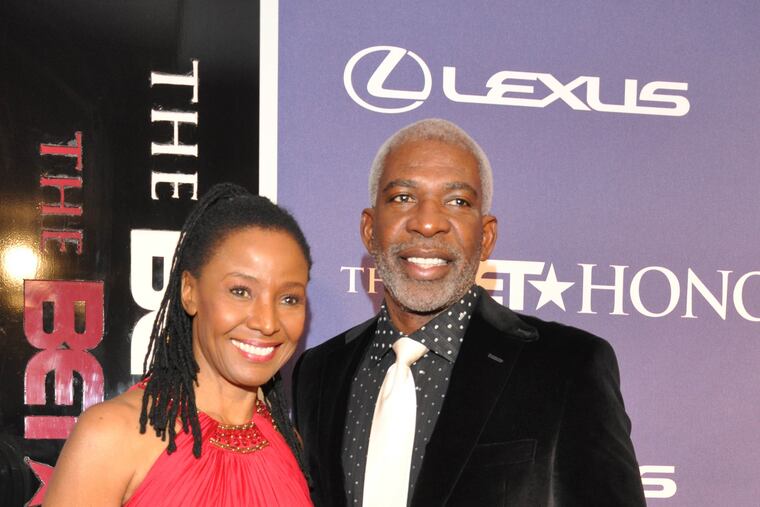Lost in the B. Smith conversation: How can Alzheimer’s patients make sure their wishes are clear? | Opinion
If your loved one has been diagnosed with dementia or Alzheimer's, have the important conversations now.

“We expect our husbands and wives to be faithful and, when they are not, all hell breaks loose — but what if your spouse has Alzheimer’s? You are well, you have needs, and yes, you took a vow to honor till death do you part, but in a sense, isn’t this a form of death?”
Those words were part of a talk I gave last February at TEDx Norristown about how, in the “upside down world of Alzheimer’s disease," we have to reevaluate and question what we’ve accepted as societal norms.
My presentation took place more than a year before the unfolding saga of beloved lifestyle icon B. Smith and her husband and business partner, Dan Gasby. In recent weeks, social media, entertainment magazines, and TV shows have blared headlines about how Gasby has a girlfriend despite still being married to Smith, who has Alzheimer’s disease and extremely diminished mental capacities.
His girlfriend, Alexandra Lerner, has a room in the Smith-Gasby home, and it’s said that she helps care for Smith. Gasby posts frequent videos online of Smith at home with him and Lerner. In countless screeds on Facebook, legions of B. Smith fans have attacked the optics and the propriety of the arrangement. Gasby claims he has received death threats.
But in the midst of all the talk, we are failing to have an important conversation: What if you or your loved one received a diagnosis of Alzheimer’s? How would you want to be cared for? Who would you want as your caregiver?
These aren’t far-fetched questions when you consider more than 5 million Americans have Alzheimer’s and, for communities of color, the statistics are even more troubling. If you are African American or Native American, you are twice as likely as a white person to have this disease. For Hispanics, the risk is only slightly less.
I’m making a documentary about Alzheimer’s and I am also an attorney, so I can tell you this is not a subject people want to talk about and it is an issue fraught with legal and ethical challenges.
Traditional legal documents, while crucial, don’t always meet the complicated challenges of this cruel disease.
Advanced directives are aimed at an imminent terminal health situation or conditions like a persistent coma. Alzheimer’s and dementia worsen gradually over the years. A durable power of attorney addresses a person’s assets, such as money and personal belongings, but not other issues.
In an effort to fill the void, a well-known geriatrician, Dr. Barak Gaster, has created a five-page document for dementia and Alzheimer’s patients. The Dementia Specific Advance Directive, at www.dementia-directive.org, is easy to follow and allows a person to answer how care is to change as the disease advances. It is also free and easily downloaded. Additionally, Pulitzer Prize-winning columnist Ellen Goodman has created a free, dementia-friendly kit on how to have a conversation around end-of-life matters, at www.theconversationproject.org.
Ask your loved one, if you were B. Smith, would you choose to remain at home? If so, how does home-care look, especially since this disease requires more and more intensive care as it progresses. How do you want your dignity respected? In a video interview with the Washington Post, Gasby said, “Over the decades, B. used television and pictures to communicate her inner self through her outer beauty.” But he now posts videos that show her through a lens that I believe would not be of her choosing. That is my opinion, but rather than post a response on Facebook, how about using it as the opening to have a face-to-face conversation with the person in your life.
Renee Chenault Fattah is a lawyer and former TV broadcaster now working on a film on Alzheimer’s and dementia in communities of color.